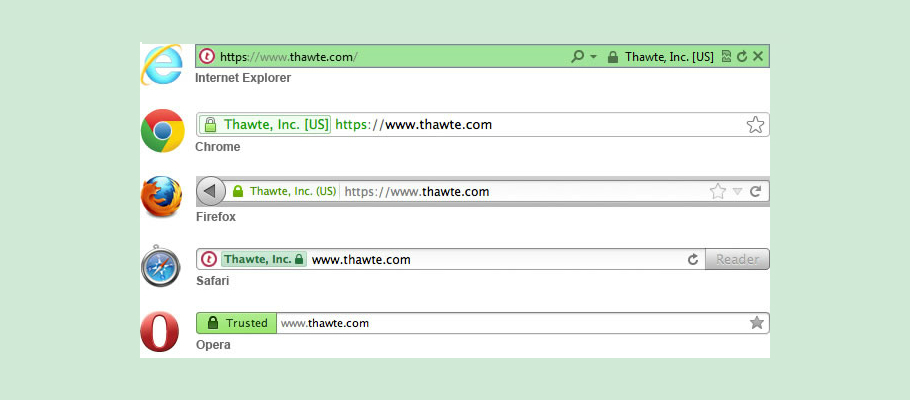As consumers select to store, share, bank and view financial statement online, it has happen to more sensitive about safety. They use the website to make inquiries and social networks, but picked up the phone or go to the store or bank branch to present payment information, or create an account. Concern about identity theft and fraud carry many website visitors to complete online transactions.
Extended Validation SSL has established to be a key factor in conquering the reluctance of consumers to do dealing online. The companies say their sites with EV SSL report a regular increase in transactions cause of the address bar turns into green bar with EV SSL in high-security browsers, and provide an additional layer of security of the site that consumers can see and trust. Increase online transactions, reduce shopping cart abandonment, and becomes more guests to members with EV SSL certificates.
Online growth slows to a lack of confidence
Although identity theft most internet users online, identity theft is listed as the main reason for not buying online. On the Web, this question is easy to measure:
- When users neglect to buy and leave shopping carts empty that can cause revenue gap and lower sale.
- When customers reach to enrollment page but do not fill the whole form means they are not participating to your sales revenue.
- Currently, attackers use high branded names to perform cyber attacks. They entice users and land them on a fake site pretending to be a legitimate site.
Online frauds has become more synchronized and complicated, eroded the trust that is important for online dealings. Phishing schemes use email and a legitimate website to trick visitors to share personal information. SSL stripping, the man-in-the-middle attack, securing users, but fake website is targeting to a web mail application, secure websites, and intranets.
Phishing Defined:
One type of fraud where emails and sites that appear to be from a famous brand are actually fake websites where information is captured and used for identity theft.
Restore Confidence with Extended Validation
Many website vendors are recognizable with SSL: http in the URL and a closed padlock. Before EV SSL, users of the site have to confidence that the only valid websites protected by SSL. Gougers use careless validation policy to buy SSL certificate for a fake domain and that the site is safe to launch phishing attacks and man-in-the-middle attacks, undermine consumer confidence in its entirety. EV SSL certificates offer simple and low cost to help reduce abandonment and increase translations, while reducing costs and protecting personal information through secure online transactions.
How EV SSL Works?
EV SSL Certificates give an additional layer of security for customers and website vendors by require a strictly distinct issuance and organization process for EV SSL as definite by the CA/Browser Forum. Now, Now, the EV SSL has become a standard feature of security in browsers, like Internet Explorer 7+, Firefox 3.0+, and on mobile devices like the iPhone and Droid. These browsers recognize EV-secured websites and indicate the presence of EV in a unique way. Users simply see that the website can be trusted. Therefore, consumer confidence has increased and an attack on sites protected by EV SSL has become more difficult.
Higher Authentication Standard
Before issue EV SSL Certificates, SSL provider must:
- Verify the legal, physical and operational existence of the entity
- Verify that the identity of the entity matches official records
- Verify that the entity has exclusive right to use the domain specified in the EV Certificate
- Verify that the entity has properly authorized the issuance of the EV Certificate
Online services and sales has become a growth area for companies of all sizes in various industries. EV SSL Certificates have shown that it is easier for customers to feel safe sharing their personal information online. Read more about: EV SSL Authentication Requirements


